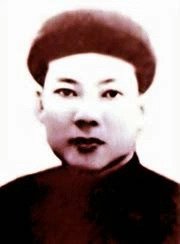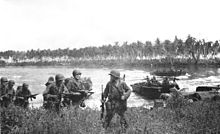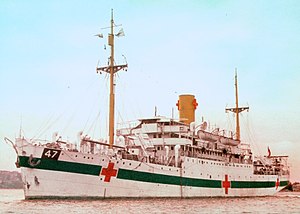Portal:History
The History Portal
History (derived from Ancient Greek ἱστορία (historía) 'inquiry; knowledge acquired by investigation') is the systematic study and documentation of the human past.
The period of events before the invention of writing systems is considered prehistory. "History" is an umbrella term comprising past events as well as the memory, discovery, collection, organization, presentation, and interpretation of these events. Historians seek knowledge of the past using historical sources such as written documents, oral accounts or traditional oral histories, art and material artifacts, and ecological markers. History is incomplete and still has debatable mysteries.
History is an academic discipline which uses a narrative to describe, examine, question, and analyze past events, and investigate their patterns of cause and effect. Historians debate which narrative best explains an event, as well as the significance of different causes and effects. Historians debate the nature of history as an end in itself, and its usefulness in giving perspective on the problems of the present.
Stories common to a particular culture, but not supported by external sources (such as the tales surrounding King Arthur), are usually classified as cultural heritage or legends. History differs from myth in that it is supported by verifiable evidence. However, ancient cultural influences have helped create variant interpretations of the nature of history, which have evolved over the centuries and continue to change today. The modern study of history is wide-ranging, and includes the study of specific regions and certain topical or thematic elements of historical investigation. History is taught as a part of primary and secondary education, and the academic study of history is a major discipline in universities.
Herodotus, a 5th-century BC Greek historian, is often considered the "father of history", as one of the first historians in the Western tradition, though he has been criticized as the "father of lies". Along with his contemporary Thucydides, he helped form the foundations for the modern study of past events and societies. Their works continue to be read today, and the gap between the culture-focused Herodotus and the military-focused Thucydides remains a point of contention or approach in modern historical writing. In East Asia, a state chronicle, the Spring and Autumn Annals, was reputed to date from as early as 722 BC, though only 2nd-century BC texts have survived. The title "father of history" has also been attributed to Sima Qian and Ibn Khaldun in their respective societies. (Full article...)
Featured picture
Did you know (auto generated)

- ... that LGBT rights activist Kit Malone helped create the first transgender organized marching group in the Indianapolis Pride Parade's history?
- ... that the Los Angeles Sparks have the most wins and highest winning percentage in WNBA history?
- ... that Charles Turzak's book of woodblock prints presenting the life of Abraham Lincoln was the first ever such life of a historic figure presented only in images?
- ... that Reconstructing Womanhood by Hazel Carby, about the history of American black women writers, was said to be a "landmark study" and "groundbreaking"?
- ... that the titular character of Verdi's Nabucco, the opera that established his fame, is a combination of three historic rulers?
- ... that The Great Wave off Kanagawa has been described as "possibly the most reproduced image in the history of all art"?

Ngô Đình Cẩn (Vietnamese: [ŋo˧ ɗɨ̞̠n˦˩ kəŋ˦˩]; 1911 – 9 May 1964) was the younger brother and confidant of South Vietnam's first president, Ngô Đình Diệm, and an important member of the Diệm government. Diệm put Cẩn in charge of central Vietnam, stretching from Phan Thiết in the south to the border at the 17th parallel, with Cẩn ruling the region as a virtual dictator. Based in the former imperial capital of Huế, Cẩn operated private armies and secret police that controlled the central region and earned himself a reputation as the most oppressive of the Ngô brothers.
In his youth, Cẩn was a follower of the nationalist Phan Bội Châu. In the late 1940s and early 1950s, he worked to organise support for Diệm as various Vietnamese groups and international powers sought to stamp their authority over Vietnam. Cẩn, who succeeded in eliminating alternative nationalist opposition in central Vietnam, became the warlord of the region when his brother became president of the southern half of the partitioned nation in 1955. He became notorious for his involvement in smuggling and corruption, as well as his autocratic rule. Cẩn was regarded as an effective leader against the Viet Cong communist insurgency, which was much weaker in central Vietnam than in other parts of South Vietnam. His Popular Force militia was regarded by US officials in central Vietnam as a successful counter to the communists. (Full article...)On this day
- 1806 – An explosion at a gunpowder magazine in Birgu, Malta, killed an estimated 200 people.
- 1841 – Pedro II, the last emperor of Brazil, was crowned (depicted) at the Old Cathedral of Rio de Janeiro.
- 1949 – Francisco Javier Arana, the chief of the Guatemalan armed forces, was killed in a shootout with supporters of President Juan José Arévalo.
- 1984 – A gunman massacred 21 people and injured 15 others at a McDonald's restaurant in the district of San Ysidro of San Diego, California.
- 2019 – An arson attack at the studio of Kyoto Animation in Japan led to the deaths of 36 people.
- Abu'l-Hasan Ali ibn al-Furat (d. 924)
- Philip Snowden (b. 1864)
- James E. Boyd (b. 1906)
- Inge Sørensen (b. 1924)
Selected quote
In truth history does not belong to us but rather we to history.
— Hans-Georg Gadamer, German philosopher
Related portals
More Did you know...
- ... that Giovanni de Ventura, a plague doctor who may have worn a beak doctor costume (pictured), was restricted by a covenant to treat only infectious patients? In the nose of the mask, there were types of plants that were used to filter the sickness from the wearer.
- ... that in some archaic Greek alphabets, an Ε could look like a Β, a Β like a C, a Γ like an Ι, an Ι like a Σ, or a Σ like an Μ?
- ... that the Chinese government has published a list of sixty-four important cultural relics that are forbidden to be exhibited outside of China?
- ... that the 1886 novel Albertine expedited the abolition of public prostitution in Norway?
- ... that Carl Sagan worked with the US Air Force on detonating a nuclear device on the Moon?
- ... that Olympic gold medals have been made out of silver, jade, and glass?
- ... that in 1945 a Japanese battalion was rearmed to serve alongside the British 5th Parachute Brigade in the Far East?
- ... that Solomon was accidentally castrated as an infant?
Topics
Categories

History • By period • By region • By topic • By ethnic group • Historiography • Archaeology • Books • Maps • Images • Magazines • Organizations • Fictional • Museums • Pseudohistory • Stubs • Timelines • Chronology • People • Wikipedia historians
WikiProjects
![]() WikiProject History •
Ancient Near East • Australian History • Classical Greece and Rome • Dacia • Former countries • History of Canada • Chinese history • European history • Heraldry and vexillology • Indian history • Jewish history • Medieval Scotland • Mesoamerica • Military history • Middle Ages • History of Science
WikiProject History •
Ancient Near East • Australian History • Classical Greece and Rome • Dacia • Former countries • History of Canada • Chinese history • European history • Heraldry and vexillology • Indian history • Jewish history • Medieval Scotland • Mesoamerica • Military history • Middle Ages • History of Science
WikiProject Time • Days of the Year • Years
WikiProject Biography • Composers • Political figures • Saints • United States Presidents
Things you can do
 |
Here are some tasks awaiting attention:
|
Associated Wikimedia
The following Wikimedia Foundation sister projects provide more on this subject:
-
Commons
Free media repository -
Wikibooks
Free textbooks and manuals -
Wikidata
Free knowledge base -
Wikinews
Free-content news -
Wikiquote
Collection of quotations -
Wikisource
Free-content library -
Wikiversity
Free learning tools -
Wiktionary
Dictionary and thesaurus






















































